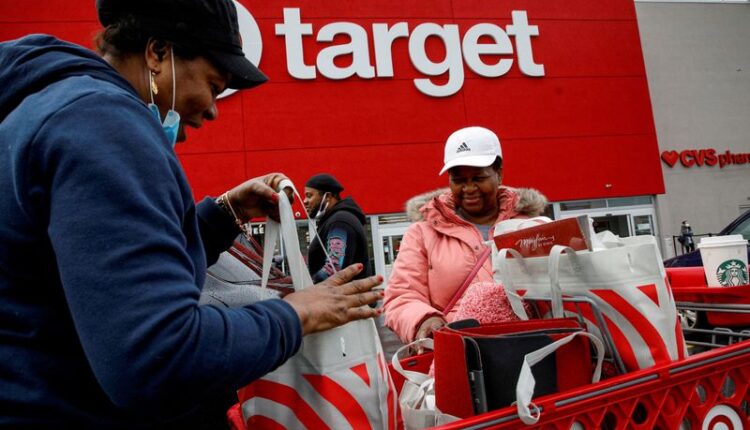By Uday Sampath Kumar
(Reuters) – Target Corp (NYSE:TGT) reported a 90% fall in quarterly earnings and missed comparable sales estimates on Wednesday as its inflation-hit customers reined in spending on discretionary goods despite higher discounts.
In contrast, larger rival Walmart (NYSE:WMT) Inc on Tuesday beat estimates as its core base of low-to-middle income shoppers flocked to its stores for bargains on groceries and other essential items.
Target’s comparable sales rose 2.6% in the second quarter ended July 30, below analysts’ average estimate of a 3.3% increase, according to IBES data from Refinitiv.
Its operating margin rate tumbled to 1.2% in the quarter, below the 2% forecast last month and 9.8% a year earlier, due to costs related with clearing out excess merchandise on store shelves, including through heavy discounting.
U.S. retailers including Target and Best Buy Co Inc (NYSE:BBY) cut their profitability forecasts in recent weeks as consumers squeezed by higher prices of everything from toothpaste to gas curtailed spending on items like apparel and electronics.
Target, which relies more on discretionary categories, has been hit harder compared to retailers like Walmart that stock a greater portion of their shelves with food and other everyday essentials.
The company’s shares dipped marginally in choppy premarket trading. They have lost more than 22% of their value this year.
Minneapolis-based Target reiterated it would return to an around 6% annual operating margin rate but said it was still “cautious” about demand for discretionary items.
“The vast majority of the costs to get our inventory where we wanted it are behind us… we’re well positioned to see improved profit performance in the back half of the year,” Chief Financial Officer Michael Fiddelke said on a media call.
The company reported quarterly earnings of $183 million, or 39 cents per share.
Even with the heavy discounting, inventory rose 1.6% at the end of the quarter from the prior quarter, with total merchandise at $15.3 billion.
The increase in inventory was due to the company expediting product shipments for the back-to-school and holiday shopping periods in a still “choppy” supply chain environment, Chief Executive Brian Cornell said.

